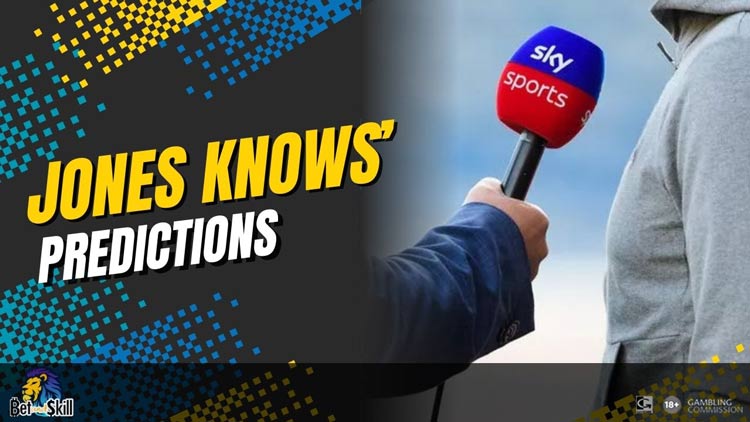The team’s performance and its form are important aspects in predicting outcomes. Here’s a look at the significance of each and how it impacts the predictions. Current Form and Momentum
Performance Trends: Teams with a high level of confidence, morale and effectiveness are more likely to keep their effectiveness.
Momentum: Success breeds. Teams that are on a winning spree frequently carry that momentum into subsequent games and impact their performance positively.
2. Injury and the possibility of Availability
Fitness of players: The health of players with high-level fitness can have an enormous impact on a team’s performance. A team with healthy and well-trained players will be more likely to win.
Team Depth – Teams with higher depth will keep up their performance levels even when they are injured. Conversely, teams with less high-quality replacements are likely to be unable to perform.
3. Tactical Consistency, Adaptation, and Adaptability
Strategic Stability: Teams who have a proven tactical approach will probably succeed. Teams who are trying out different strategies might experience mixed outcomes.
Adaptability: Teams that can adapt their tactics effectively to combat the strengths of their opponents tend to perform better.
4. Psychological issues
Confidence: Teams with confidence levels that are high are more effective under stress.
Experienced teams are better at coping with pressure in high-risk situations.
5. Home and Away Formula
Home Advantage: Teams often do better in their home environment due to the familiar conditions, crowd support and less fatigue from travel.
Travel Impact: Performances are influenced by the distance traveled, climate, and local conditions.
6. Historical Performance
Head-to-Head Records: Previous performances between two teams are an indicator of the future in particular if team that is winning consistently outperforms the other.
The history of venues: Teams could have specific venues where they historically perform well or poor.
7. Statistics Analysis
Performance Metrics – Advanced metrics such as expected goals (xG) stats on possession and defensive strength give more insight into a team than simply wins and losses.
Trend Analysis Trend Analysis: The statistical patterns can help you identify the performance levels that are underlying your company, which raw data might not be able to provide.
8. Motivation and stakes
Motivational Factors. Teams competing for titles, knockout stages, or avoiding relegation are generally more motivated.
The season’s context can impact performance. For instance teams could switch players in less critical matches.
Integrating Team Form into Predictions
When predicting sporting outcomes analysts and punters often create models incorporating the following factors:
Quantitative models: They are based on statistics such as recent performance, past performances, player statistics and other variables that can be measured.
Qualitative Analysis: Experts look at the subtleties of tactics and psychological aspects and team news that may not be fully recorded in the information.
Also, you can read our conclusion.
While team performance, form, and composition are all important aspects, they shouldn’t be the only factors to consider. Managerial strategies as well as other unpredictable factors such as the decisions of referees or weather conditions are also to be considered. Combining quantitative data with qualitative insights generally provides the most reliable forecasts. Check out the top rated today’s tennis predictions for website info.

How Important Is Weather When The Attempt To Predict Sports Results?
There are a variety of reasons why weather conditions impact sports results. There are three reasons it is essential to consider weather when predicting outcomes of sports:
Outdoor sports are influenced by weather conditions. This includes baseball, football golf, cricket and soccer. The weather conditions can impact the game, such as ball behavior, surface, and overall game dynamics.
Surface Conditions: Dirty, muddy, or icy surfaces can affect playing, raise the chance of injury, and impact the ball’s control. For instance, soccer games that are soaked with rain usually result in fewer scores and more defensive games.
Player Performance
Temperature and Humidity temperatures or humidity may affect the performance of athletes by causing fatigue, dehydration, and illnesses related to heat. This is particularly important in endurance sports like cycling and marathons.
Cold Weather: Cold temperatures may have an impact on muscle performance. They also increase the risk of tears and sprains. Also, players might be less confident or more likely to make mistakes.
Tactical Adjustments:
Game Strategies: Teams might adjust their strategies based on weather conditions. For American football, for instance, teams may be more focused on running than passing if the winds are blowing.
Equipment and Gear: Weather will affect the selection of clothing, footwear and other gear. In cricket teams will often choose to throw first if the weather is hazy and humid. This aids the ball’s move.
Home Advantage
Acclimatization. Local teams can adapt more readily to the weather conditions. For instance teams from colder regions may be better suited to snowy conditions. Teams from warmer climates might perform better during heat.
Fan Support – Bad weather could reduce fan attendance or even support, which could affect the home advantage.
Historical Performance:
Weather-Specific Records: Teams and players often have historical records that show how they perform under certain weather conditions. The study of these records could provide insight into the potential outcomes.
Consistency: Some teams or athletes might perform admirably regardless of conditions, which suggests a high degree of adaptability, while others might exhibit significant variation.
Safety Concerns:
Match postponements or announcements: Severe rain could result in delays or even cancellations of sporting events. This disrupts schedules and can impact team momentum and performance.
Weather Risk: Inclement conditions can lead to injuries, and this could affect the game as well as future games.
Different Sports and Examples
Soccer and Rugby are affected by rain. The surface can be slippery, causing ball control issues, as well as defensive errors and lower scores.
Baseball: Wind may influence the flight and result of a pitched pitch or hit.
Golf: Rain and wind can have a significant impact on the accuracy of shots and distances impacting overall scores.
Conclusion It is clear that weather conditions are a major element in predicting the results of outdoor sports. Weather conditions affect the performances of athletes, game strategy as well as team dynamics. When making predictions, it’s important to look at forecasted and current weather conditions in conjunction with other variables such as team structure injury, player performance, the record of home and away games to increase accuracy. Have a look at the recommended stevegtennis for more recommendations.

What Is The Importance Of Public Opinion And Expert Opinion When Trying Predict Sports Results?
Expert and public opinions can provide valuable insights into sports results prediction, but their importance should be considered along with other elements and with caution. What are the reasons they are crucial Wisdom of the crowd:
Diverse Perspectives: Public and expert opinions reflect a wide variety of perspectives, skills, insights and can offer valuable perspective on factors influencing an result.
Crowdsourcing: combining public and expert opinions may reveal patterns and trends individual analysis might miss, resulting in more precise predictions.
Media Influence
Public Perception: Public and expert opinions can influence public perception and sentiment surrounding a game, potentially impacting player morale, fan expectations, and even officiating decisions.
Media coverage. Expert opinions shared on mainstream media outlets can shape the narratives surrounding a specific game and affect public opinion. They may also impact betting markets.
Expertise and Analytical Skills:
Insider knowledge – Experts with direct experience in sports, including former players, analysts, or coaches, are able to provide unique insights about the dynamics of teams and players.
Data Analysis: Expert opinion that are based on statistical analysis or advanced metrics give solid evidence-based evaluations of player and team performance which allows for more precise forecasts.
Market Influence
Markets for Betting. Expert opinions can affect the odds of betting markets.
Contrarian Views: Expert opinions which differ from consensus opinions on betting markets could highlight possible value opportunities for bettors seeking alternative perspectives.
Bias and Overreactions:
Confirmation bias: The opinions of experts and the public are influenced, often, by prejudices, preconceptions or even narratives. They can overestimate or underestimate certain aspects or teams.
Emotional factors: Emotional biases can affect judgment for example, a loyality to one’s favorite team or sportsperson, and cause subjective assessments which may not match objective realities.
Reliability and accuracy:
Track record: Examining public opinion and expert opinions in the past is an effective method to determine their reliability and accuracy when forecasting the outcomes of sports.
Consensus viewpoints as opposed to. opposing viewpoints A wide range of opinions including both consensus and contrarian perspectives can provide a comprehensive understanding of the underlying factors.
Incorporating other factors
Complementary Analysis: Public and expert opinions should be weighed against other factors like the team’s performance, injuries to players as well as tactical considerations and the results of statistical analysis to create an informed prediction.
The weighting of opinions: Examining the credibility and authority of different opinions can help in determining their relative importance in the forecasting process.
In conclusion, expert and public opinion can offer valuable insights and perspectives when predicting outcomes in sports, but they must be considered critically and combined with other elements in order to create a full prediction. Although they can offer valuable analysis and context, relying exclusively on experts or the opinions of others without considering other aspects could lead to an incomplete or inaccurate predictions. 
Leave a Reply